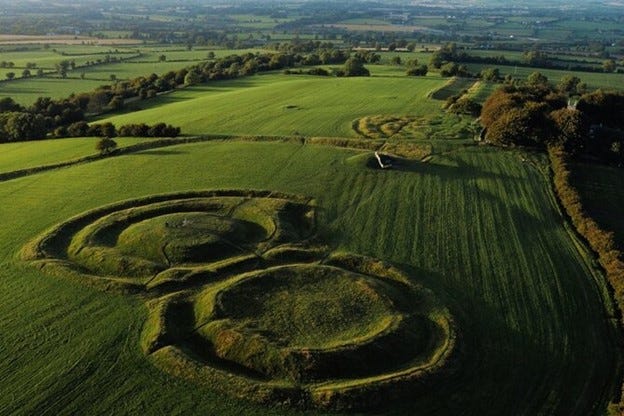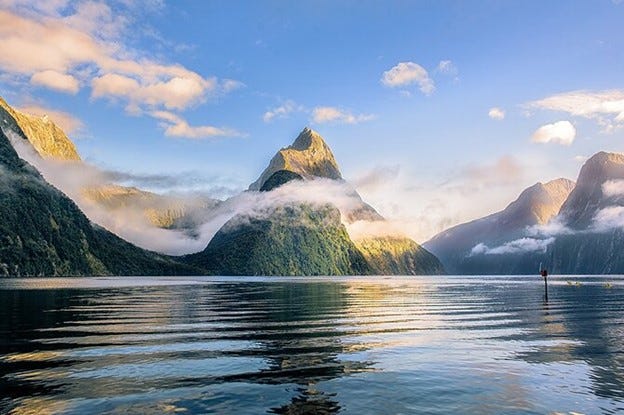Bonus Issue - International Travel Day - Tourism and Peace
‘Peace cannot be kept by force. It can be achieved by understanding. ‘Albert Einstein
Today is International Travel Day. This year the theme is Tourism and Peace.
So, I am asking for all of us to stop and think about how much we love to travel and how much we can do to ensure that peace will be maintained for us to continue with our passion.
Pursuing peace is a continuing endeavour, and progress through tourism is more relevant than ever. Tourism can play a vital role in fostering peace and understanding between nations and cultures and supporting reconciliation processes.
Who are the most peaceful countries?
Currently the Global Peace Index ratings are:
Rank Country Name GPI 2024 Score
1 Iceland 1.112
2 Ireland 1.303
3 Austria 1.313
4 New Zealand 1.323
5 Singapore 1.339
6 Switzerland 1.350
7 Portugal 1.372
8 Denmark 1.382
9 Slovenia 1.395
10 Malaysia 1.427
Source: Global Peace Index 2024
Key regional highlights:
Europe:
Western Europe is recognised as the most peaceful region globally in the 2024 GPI, with seven of the top ten most peaceful countries located there and even ranking in the top three. Iceland has retained its position as the most peaceful country in the world since 2008, despite a slight decrease of 1.55% in its peace score due to a small rise in violent demonstrations. Greece has shown significant improvement in peacefulness, ranking 40th globally, with a 7.48% increase in its score. This is primarily driven by reduced internal conflict intensity and enhanced relations with neighbouring countries. Conversely, Turkey ranks as the least peaceful country in Europe on the 2024 GPI, global ranking of 136th, and is experiencing a 0.69% decrease in overall peacefulness, largely attributed to increased militarisation in recent years.
Asia-Pacific:
The Asia-Pacific region experienced a slight decrease in peacefulness in the 2024 Global Peace Index (GPI), with an overall score decrease of 0.1 per cent. However, it still maintains its position as the second most peaceful region globally, a ranking it has held since 2017. New Zealand is the most peaceful country in the Pacific region and is ranked 4th globally in the 2024 GPI. Singapore and Malaysia are the most peaceful countries in Asia, ranking 5th and 10th globally, respectively. Conversely, North Korea has consistently been the least peaceful country in the Asia region since the inception of the GPI, currently ranking 152nd globally. Japan experienced its most significant deterioration since the inception of the GPI, dropping four places to now be ranked 17th globally, owing to deteriorations in all indicators within the militarisation domain.
North America:
North America, the world’s third-most peaceful area, endured the most significant drop in the GPI 2024, with the average percentage of peacefulness falling by just under 5%. The North American area consists of only two countries in the peaceful index: Canada and the United States, and interestingly, there is a notable considerable disparity, with Canada ranked 11th and the US ranked 132nd on the list of global peace rankings. The United States experienced a 5.7% drop in peacefulness, primarily due to an increase in politically motivated assaults and mass shootings.
Russia and Eurasia:
The Russia and Eurasia region saw the largest improvement in GPI 2024, with an average peacefulness improvement of 0.6%. However, the conflict between Ukraine and Russia still ranks the regions 157th and 159th globally, respectively. Notably, Kazakhstan, the most peaceful country in the region, saw the largest improvement in peacefulness, with a 10.8% overall score increase, bringing its ranking from 78th to 59th in 2024.
Middle East and North Africa:
The Middle East and North Africa (MENA) area remains the least peaceful region for the ninth consecutive year, owing to the Israel-Gaza hostilities and internal Sudanese disputes. Four of the ten least peaceful nations are located here, with Yemen, being the least peaceful country in the area and globally, ranked bottom at the 163rd. In contrast, Kuwait is the most peaceful country in the MENA region and the 25th most peaceful country in the world.
Where does India stand?
India is one of the largest countries in the South Asia region and one of the largest economies in the world. The overall level of peacefulness in India has improved by 1.6 per cent over the past year, making it more peaceful now than at any time since the index was established. India is currently ranked 116th globally in the GPI 2024, which is a significant improvement from its 126th rank in 2023, 139th in 2020, and 141st in 2019. While India continues to face challenges in its relationships with neighbouring countries like Pakistan and China, there have been noticeable improvements in internal conflicts, perceptions of criminality, and indicators of terrorism impact.
Southeast Asia: Comparing India with its neighbouring countries:
The Southeast Asia region has seen a slight decrease in peacefulness over the past year, with four out of seven countries experiencing deterioration. The main cause was a decline in the militarisation, with UN peacekeeping funding payments decreasing and military expenditure increasing.
I recently wrote about ‘Escaping the hustle and bustle and having alone time with peace and calmness. Days in the lap of nature. So that you can be recharged and join back into life.’ (part of my Newsletter on Travel Trends)
So, in support of this year’s theme and the Top Five GPI-rated countries, I have challenged myself to find peaceful journeys to them.
Iceland - Puffin Cruise with Expert Tour Guide from Reykjavik

Ireland - Celtic Boyne Valley & Ancient Sites Day Tour From Dublin
Austria - Sound of Movies: Musical Tour to Salzburg from Vienna
New Zealand - Milford Sound Small Group Tour from Queenstown
Where does Australia rank? Australia is ranked 19 with an index 1.536.
In the words of John Lennon’s war protest song of 1969.
‘All we are saying is give peace a chance All we are saying is give peace a chance’
“Be the change that you wish to see in the world.” —





